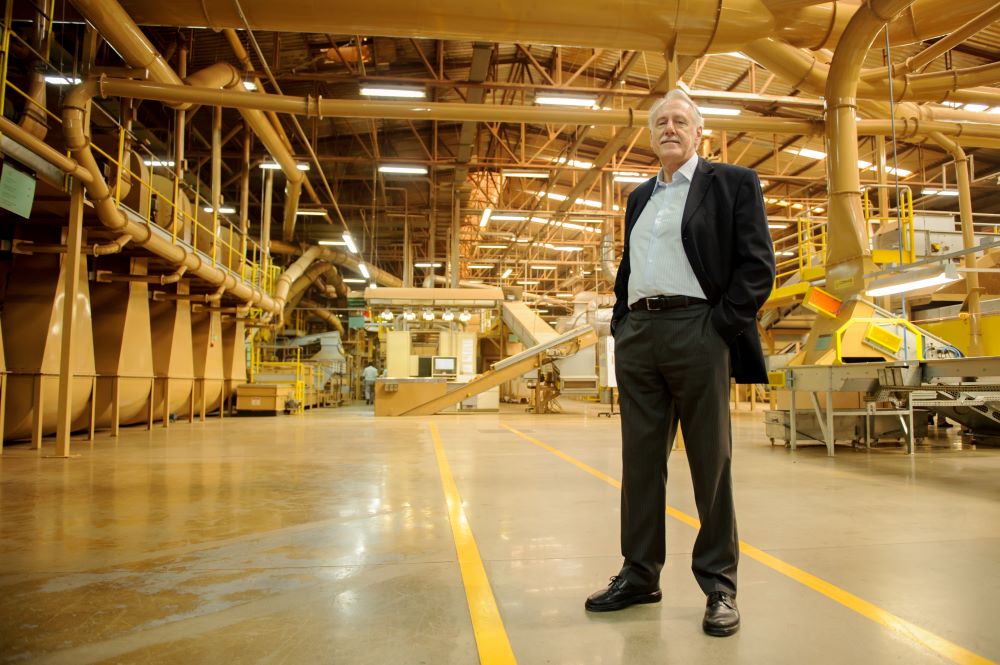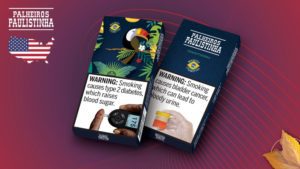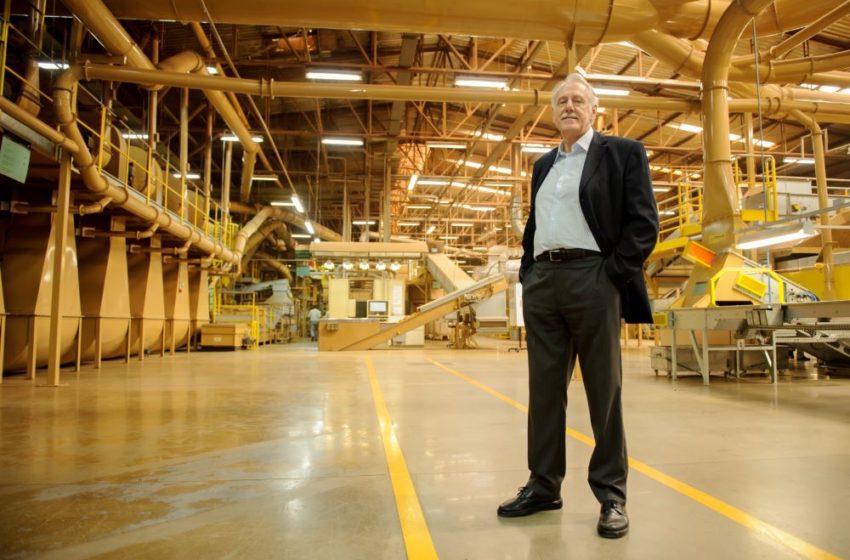
Following last year’s record earnings, Brazil’s leaf tobacco sector expects a larger crop in 2023.
By Marissa Dean
As global markets ebb and flow with impacts of the Covid-19 pandemic, inflation and the Russia-Ukraine conflict, the tobacco sector has not been spared. Labor shortages, shipping issues and price inflation have all impacted tobacco growing and sales over the past few years. Through this, though, Brazil has come out in the positive in the last year and expects to see another good crop season in 2023.
Increased Earnings
Brazil’s 2022 tobacco leaf exports brought in the most earnings since 2014, when the country sold $2.3 billion worth of tobacco leaf internationally (see “The Way Forward,” Tobacco Reporter, February 2014). The $2.5 billion earned from leaf exports in 2022 reflected a 67.44 percent increase in value and a 25.93 percent increase in volume from 2021, with the negative impacts from the pandemic beginning to subside and logistical bottlenecks easing.
In 2021, Brazil exported 464,429 tons of tobacco leaf, amounting to $1.46 billion, according to the Interstate Tobacco Industry Union (SindiTabaco). In 2022, the country exported 584,861 tons of tobacco leaf, amounting to $2.45 billion.
The 2021/2022 crop fetched a price of brl17.02 ($3.28) per kilogram in southern Brazil versus brl10.54 per kilogram for the 2020/2021 crop, according to Afubra, the Tobacco Growers’ Association of Brazil.
The majority of exports last year were headed to Europe, with Belgium accounting for 26 percent of shipments. China bought 19 percent of Brazil’s tobacco while the United States purchased 6.3 percent.
While there were many factors that contributed to the substantial earnings last year, “The decisive factors that contributed to the higher-than-expected exports in 2022 were the 2021 unsold stocks, which were shipped abroad in early 2022, and the improvement to the shipping and container logistics in the second half of 2022,” said Iro Schunke, president of SindiTabaco.
What’s to Come in 2023?
Following the strong 2022 season, Brazil is expected to harvest a slightly larger crop this year. According to Afubra, the planted area in southern Brazil should yield an estimated 604,732 tons, 7.95 percent more than in 2022.
To reach these estimates, the growers’ organization uses the number of plants registered in the entity’s Mutual System, by type of tobacco, according to Benicio Albano Werner, Afubra’s president. “To these numbers, we add the number of plants on properties that are not registered in the system,” he said. “It is considered also the percentage that producers planted above or below the quantities registered. These three factors give us the planted area.”
“The Brazilian tobacco crop is expected to reach approximately 600,000 metric tons,” said Schunke. “The quality of the crop will be good enough to meet the requirements of the different clients.”
In the Rio Grande do Sul region, tobacco growers increased their planted area by 3.17 percent and production is estimated to be 3.8 percent higher. In Santa Catarina, planted area was increased by 10.22 percent and production is estimated to be 11.49 percent higher. In Parana, planted area was increased by 6.99 percent and production is estimated to be 10.93 percent higher.
When asked about how the expected increase in crop size would affect 2023 sales and earnings, Schunke said, “The Brazilian tobacco crop has remained around 600,000 metric tons over the past five years, and the average shipments abroad over the same period have remained little above 500,000 metric tons. Therefore, the current crop fits into this context.”
The increase in production area was expected, according to Werner. “The past crop was, for a large part of tobacco growers, very profitable, with high lucrativeness,” he said. “This encouraged some producers to increase their planted area.”
Hurdles
Globally, the past few years have been hard; beginning with the Covid-19 pandemic in 2020 and followed by supply chain issues, global labor shortages, global inflation and the conflict in Ukraine, many sectors have been impacted in some way. Tobacco farming is not exempt.
Brazil’s tobacco industry is dominated by small-scale farming, with a total of 142,190 producers, the majority of whom are in southern Brazil (128,448) followed by the northeast (13,390) and a marginal amount located elsewhere in the country (352). The overall number of producers has decreased from the 2020/2021 season, which counted 151,388 producers.
The Covid-19 pandemic exacerbated the problem of child labor around the world due to increases in poverty, school closures and labor shortages. The International Labor Organization and the United Nations Children’s Fund released a report showing that 160 million children and adolescents ages 5 to 17 were subjected to child labor in early 2020.
The tobacco industry in Brazil has made considerable headway in addressing the problem. The Growing Up Right Institute, which focuses on eliminating child labor, is an initiative of SindiTabaco and its associated companies, supported by Afubra, helping to keep teenagers and children of tobacco farmers out of the tobacco fields. Companies associated with the institute hire young apprentices and pay them a salary equal to 20 hours a week to attend a rural management and entrepreneurship course after regular school hours.
In July 2022, the Growing Up Right Institute held a seminar in Santa Cruz do Sul with associates and partners, discussing progress made in combatting child labor and the work that needs to be done going forward. “The institute was founded with the mission to fight child labor and generate opportunities for adolescents from the rural setting, especially in tobacco growing regions,” said Schunke, who is also president of the Growing Up Right Institute. “It is a complex task, but with good partnerships, we have achieved great results. We have already become known nationally and internationally for the innovative method of offering opportunities to adolescents from the countryside through the learning law.”
Additionally, “The increase in [cost of] farm inputs, along with higher international freight costs, were responsible for pushing up the production costs of all agricultural crops, including tobacco,” said Schunke. While, based on last year’s earnings and expectations for this year, Brazil’s tobacco income seems well positioned, the industry will still have to fight against global inflation and the remaining supply chain issues.
“It is worth emphasizing that Brazil has been the largest tobacco exporter for 30 years due to the quality and integrity of the crop whilst complying with ESG [environmental, social and governance] questions,” said Schunke. “It is important for the tobacco growers to continue in line with these principles, always acting in compliance with good agricultural practices.”
A Rural Tradition

Brazil is a prominent player in the global tobacco industry, known not only for its leaf tobacco but also for its cigarette manufacturers, including market leader BAT Brasil, which is perhaps better known as Souza Cruz. Within the larger commercial industry, however, lies a smaller, more rural niche of straw cigarette makers.
Palheiros Paulistinha is located in Bebedouro, Sao Paulo, Brazil, and specializes in the production of straw cigarettes, an artisanal product of Brazilian tobacco filler with a corn husk wrapper. The company was started in December 2004 with the aim of preserving the tradition of Brazilian straw cigarettes as well as adding value to the corn production process, making straw a high-scale raw material.
Palheiros Paulistinha produces about 168 million cigarettes per year, with the possibility of expanding local production to 300 million cigarettes annually. The company offers seven product lines, including flavored and nonflavored products.
Straw cigarettes are popular in the rural communities and among young adults, according to the company, partly because they lack chemical additives, with the exception of flavorings such as menthol. “We are experiencing a change of habits when it comes to tobacco customers in Brazil,” said Eduardo Pierini, export director of Palheiros Paulistinha. “While in the rest of the world, they are migrating to e-cigarettes and vapes, in Brazil, despite those products, they are more attracted to straw cigarettes because they are more natural and ‘stronger.’” This change has led to an increased market share for the company.
Each cigarette is handmade by trained individuals who prep the tobacco and corn leaves, cut the leaves, sterilize them and roll the cigarettes. Because of the handmade aspect, these products are more expensive than traditional cigarettes; however, the lack of chemical additives and “lack of smell,” according to the company, make them very popular as a “natural” cigarette alternative.
The company works with many small farms to procure corn husks “because the biggest suppliers sell the corn leaves to industries to produce animal feed,” according to Renata Grasseschi Dunck, export consultant for the company. They have eight suppliers, who buy corn leaves from different farms and from different states. The tobacco used in the cigarettes comes from Bahia in the northeast region of Brazil. Dunck went on to explain that Palheiros Paulistinha helps tobacco farmers buy “corn leaves for a higher value than the market. We also offer training, growth prospects, etc. [for the farmers].”
There’s a big focus on community within the company—“We also work in the rehab of prisoners, offering to them the opportunity to have a job,” said Dunck. “The prisoners have a lot of benefits working,” added Pierini. Prisoners are paid, and the work they do shaves down their sentences; “So if you are condemned for nine years in prison, you would serve six years of [the] sentence,” said Pierini. “So it’s good for all the society.” The company has manufacturing set up in prison workshops and works with signed contracts, following all rules and requirements of regulating organizations. More than 3,000 inmates work for the company.
While the company is looking to expand internationally, having recently registered with the U.S. Food and Drug Administration, Palheiros Paulistinha puts a lot of stock in sourcing locally and keeping the tradition in Brazilian straw cigarettes. –M.D.


